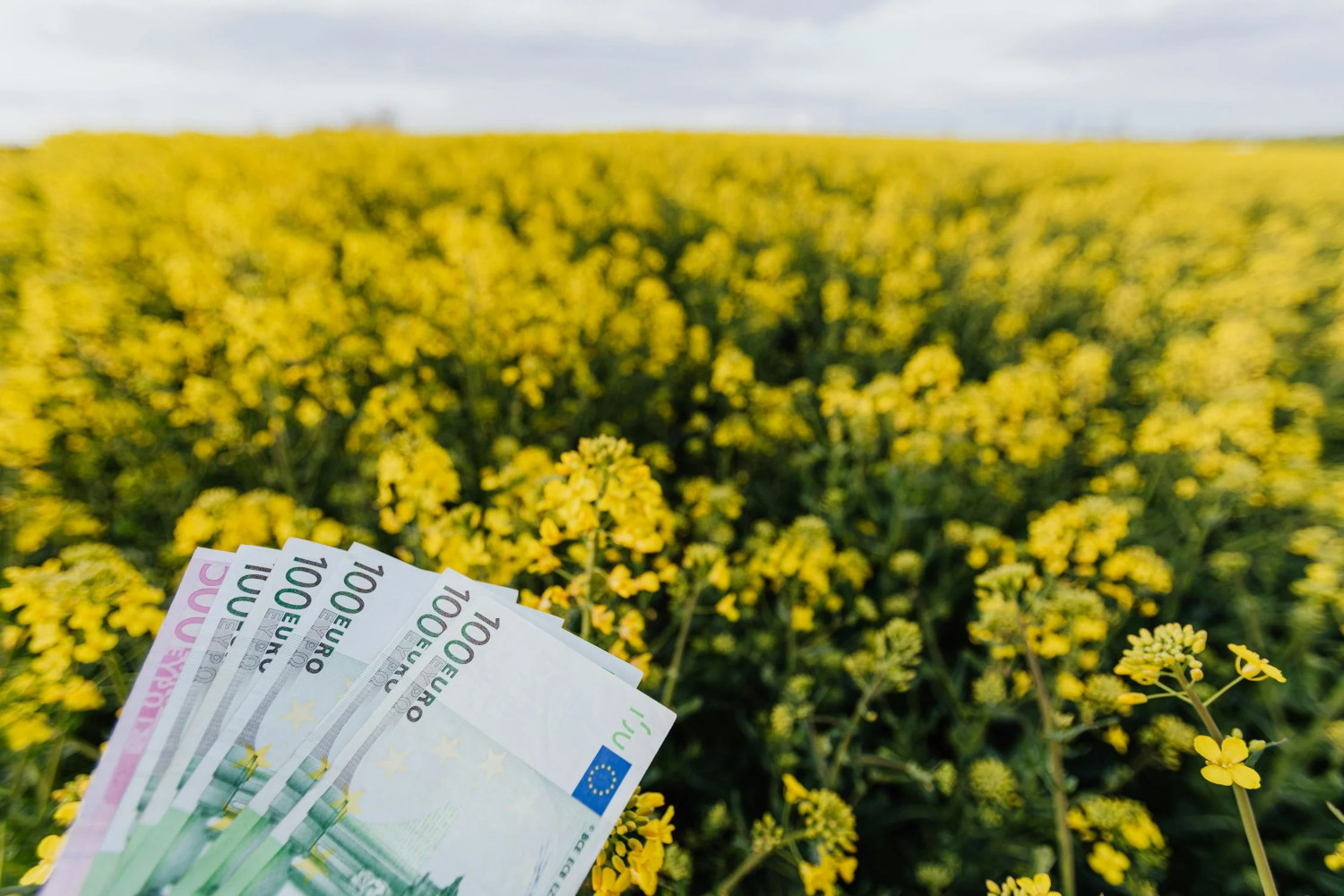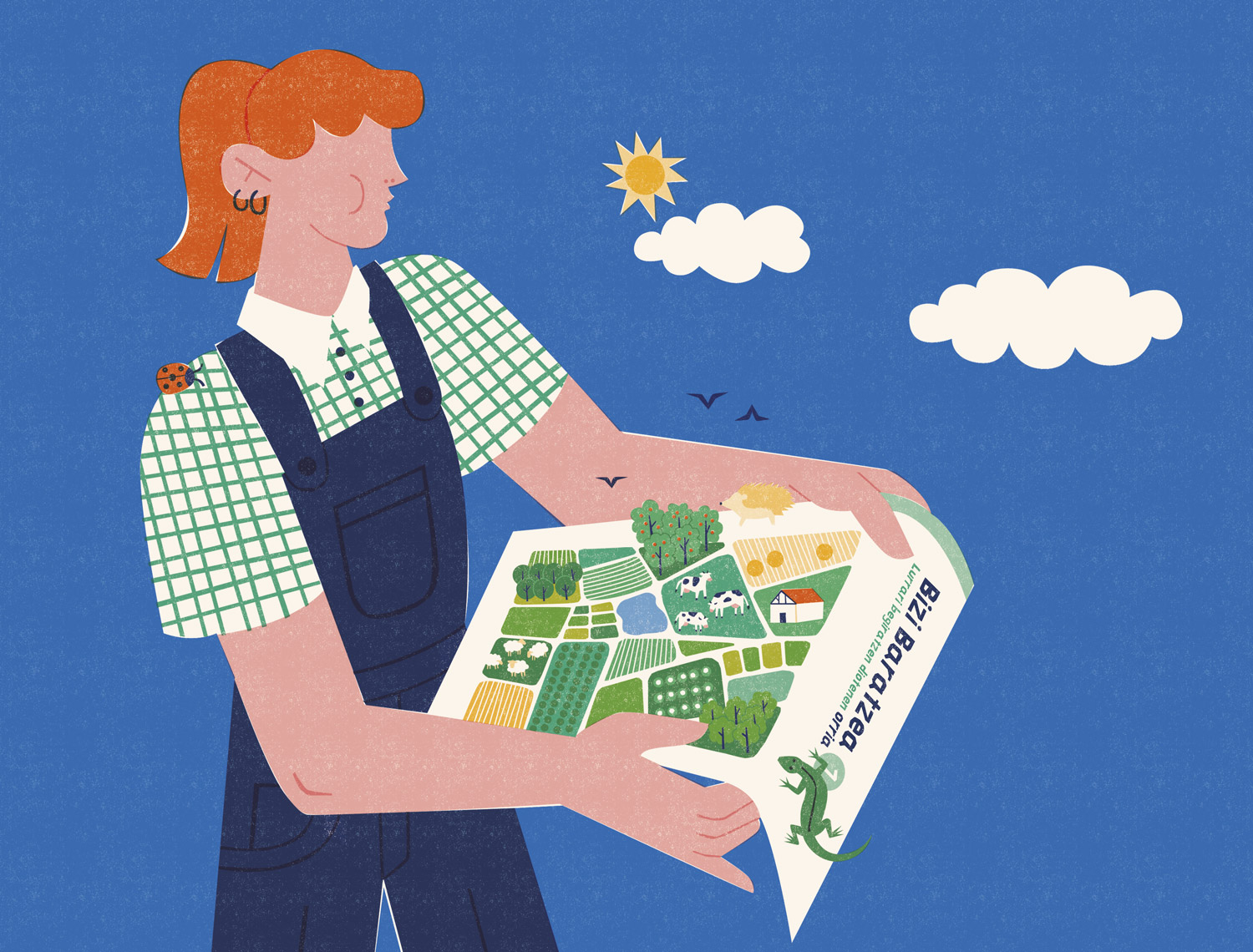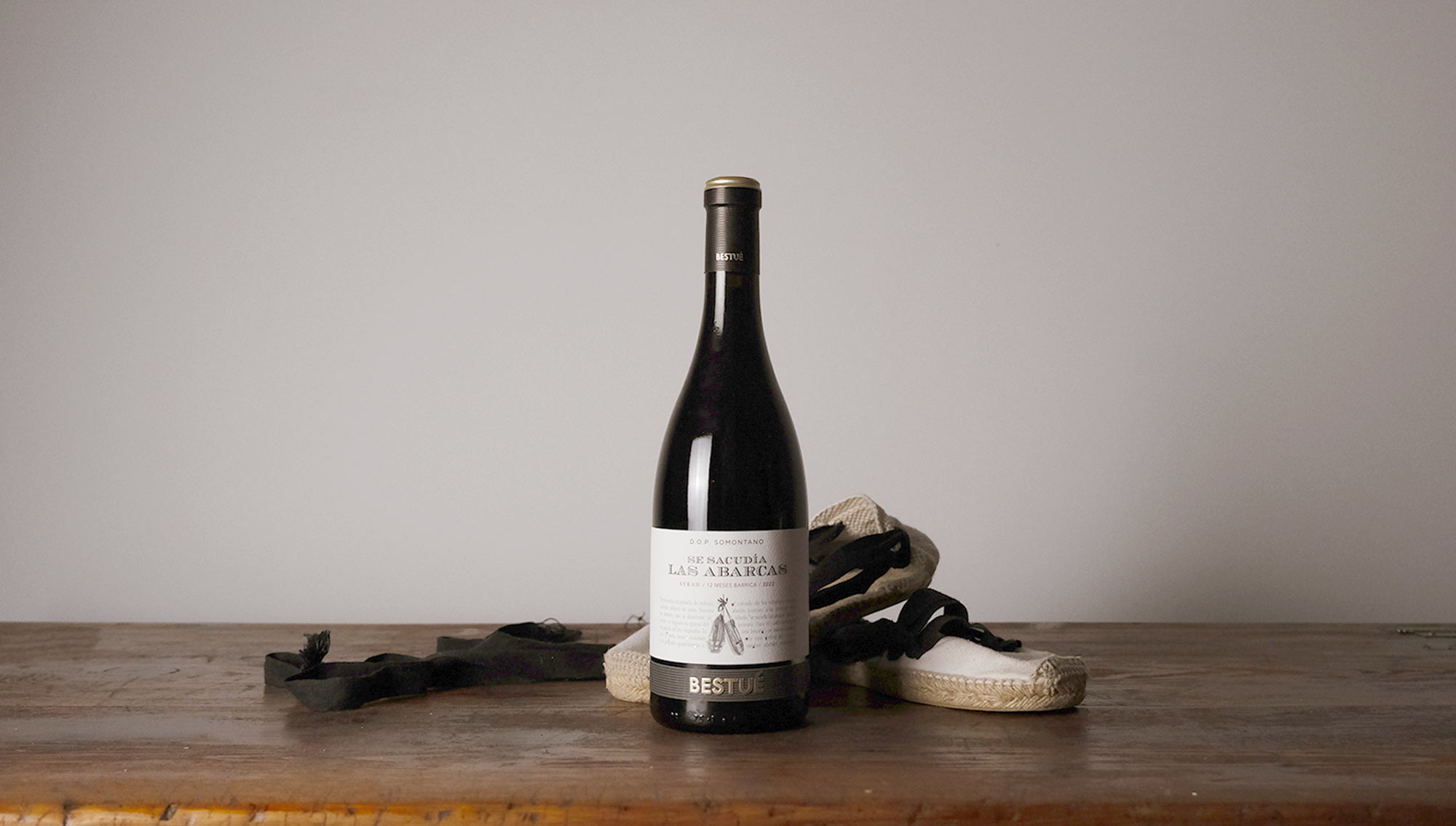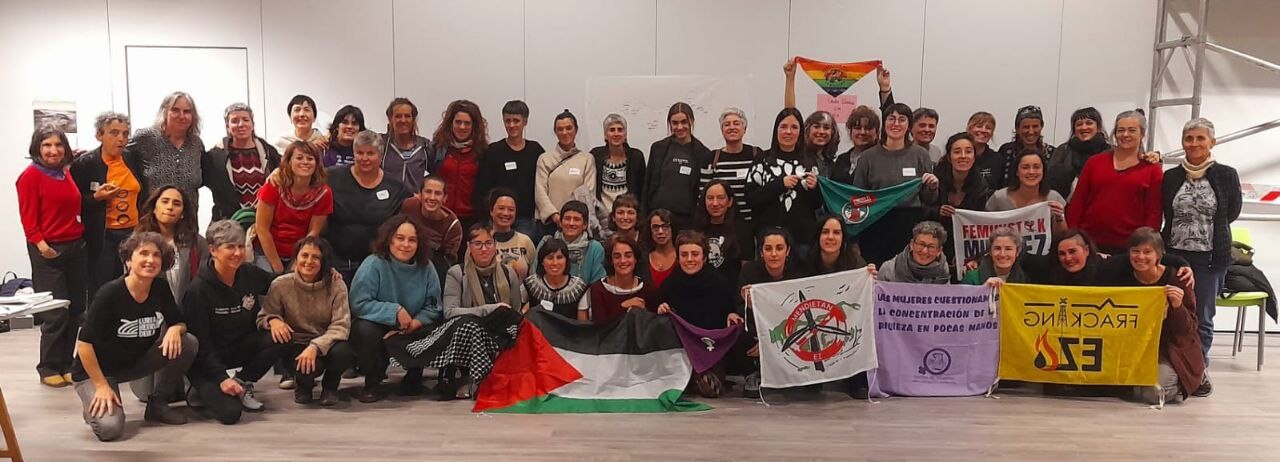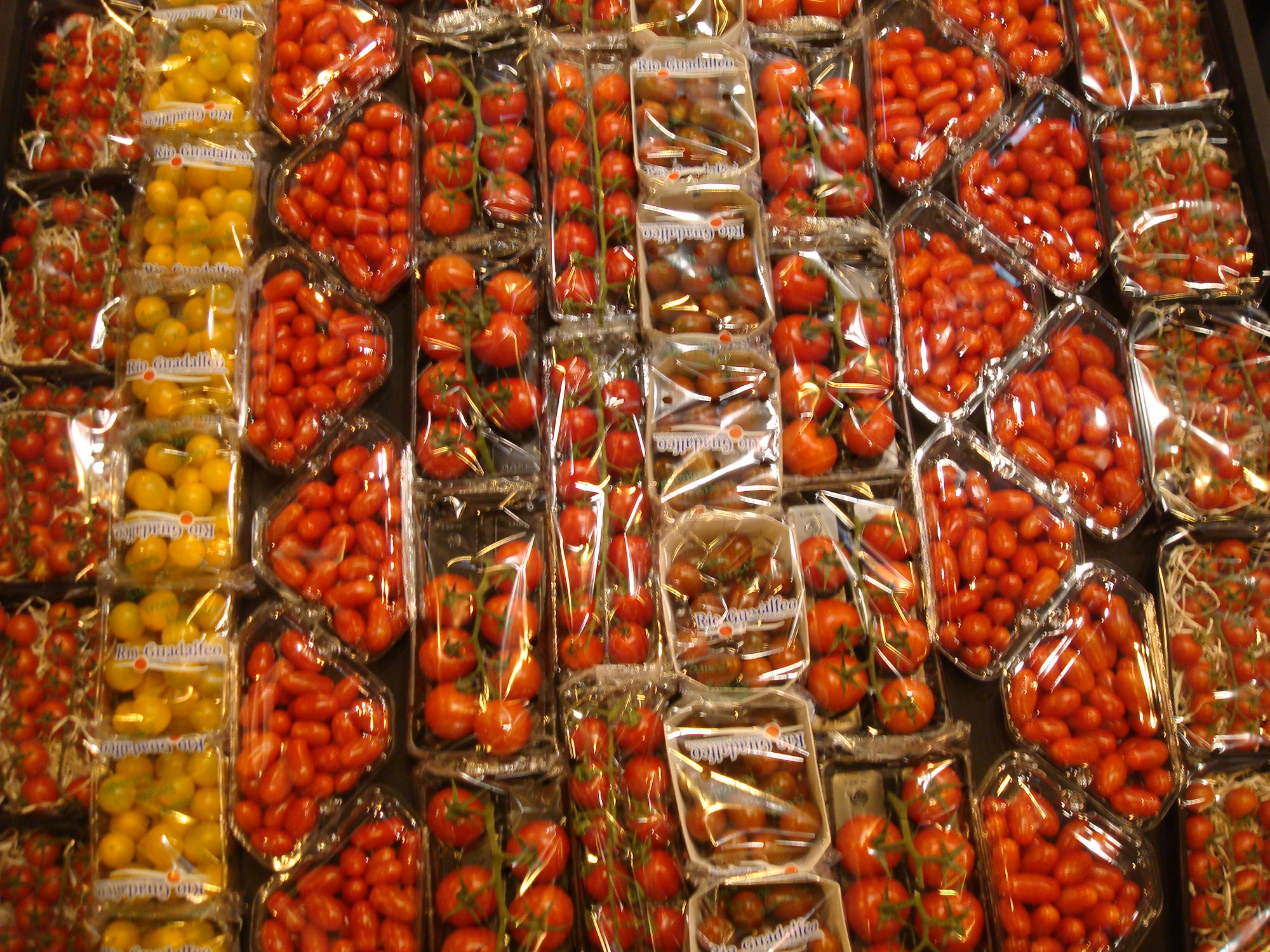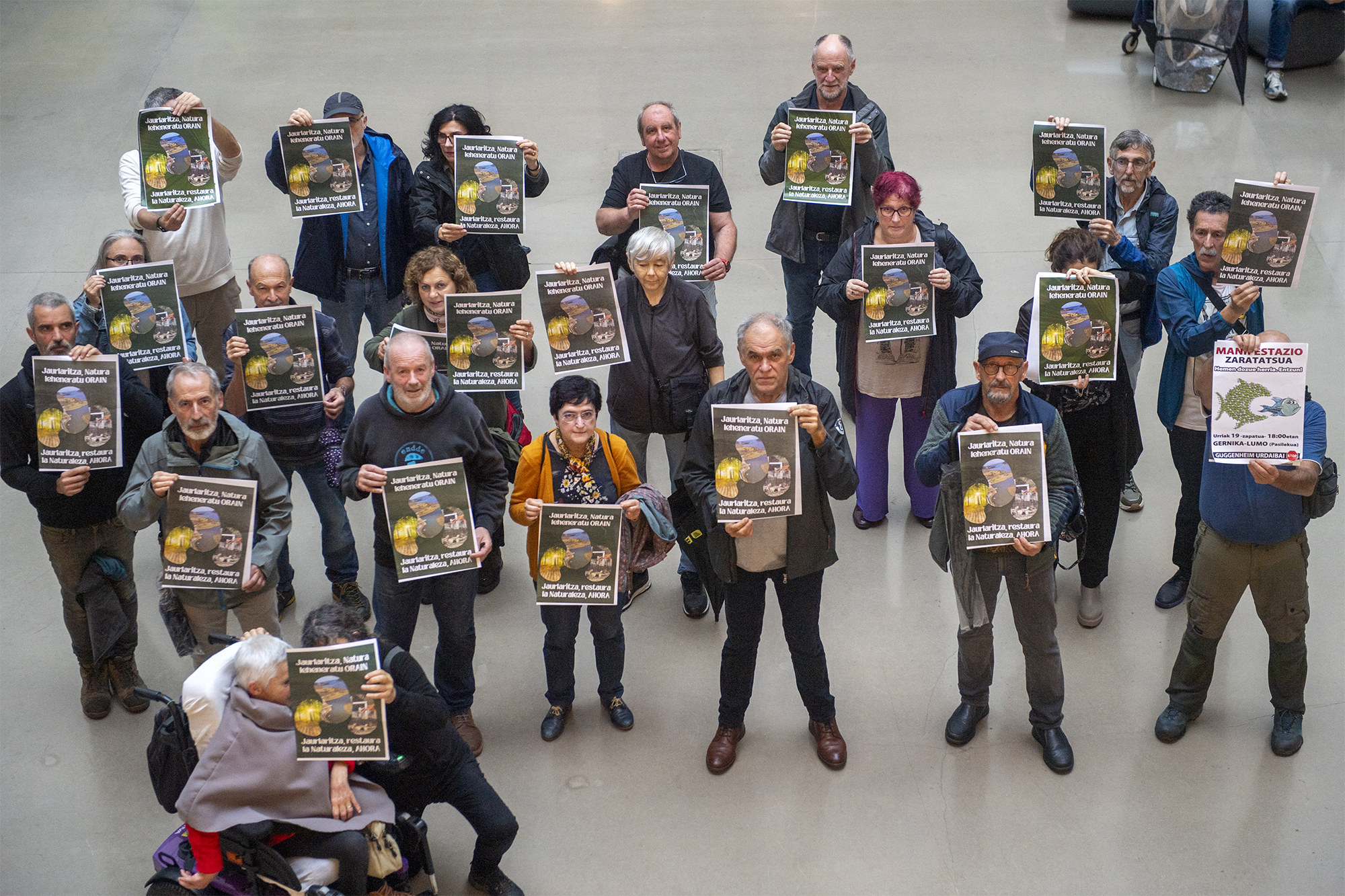The collective of Madera y Vela de Agroecología calls to defend the mountain and the rural environment
- Taking advantage of the celebration of April 17 of the International Day of Peasant Struggle and under the title “Madera y Vela”, some agroecological villages of Gipuzkoa have published a decalogue. Here you can read and adhere by signing it or writing to egurratakandela@gmail.com.

In this decalogue, these agri-ecological villages point out that they are already suffering the consequences of climate change. They explain that the origin of climate change lies in the “relationship of human beings with nature”, as we see nature as a “place à la carte”. The “waste of resources” has reminded us that we are suffering a “shortage”: gas oil, gas, minerals... They say that what we have to deal with the “eco-social crisis” is to change “the way we see, think and feel the world”: “We have to come to imagine that with less material well-being we can live the same or better than now. We only have to accept the borders of the world and those of each one, accept them, live and work with them”.
“We have to break the mountain and the industrialization of the rural environment”
They denounce that “giant” infrastructures aggravate the crisis and that “natural spaces are now necessary to feed and protect us, and let us not say descendants, given that we have only seen the first signs of climate change”.
To this end, they have chosen to promote “effective policies and strategies”: “People should be the measure and the axis, and they should ensure that communities have their rights to food, health and education guaranteed”. To ensure the right to food, they have demanded that public policies "inevitably allow the return to the dwellings and to the ground".
“Agriculture and agro-ecological livestock must be protected and promoted”
They have defended the need to protect and promote agro-ecological agriculture and livestock, “because the agro-ecological model only allows working and living in harmony with land, animals and people, always respecting nature”.
Faced with this, they say that we must “abandon large and hyper-technologized villages” and “search for many small villages, for activities and to penetrate”.
“We are not entrepreneurs but peasant workers”
“We are committed to feeding our fellow citizens,” they say, “we help transform the community so that all members live well.” “The spaces of the farmhouse should be auxiliaries and participants of the biodiversity of their surroundings” In the words of the collective Madera Ta Kandela, and on the way of working have indicated that “Using technology and machinery moderately, knowing that the person should be the measure of the farmhouse”.
They explain that the dwelling is a “way of being in the world”: “The dwelling, the Basque and the culture are inseparable. The three, together with others, form the way of being in the world that people have formed in this land from generation to generation.” They have expressed their desire to contribute from the rural world in contact with other peasant struggles of the world and other struggles of the Basque Country: nature groups, workers, culture, Basque, feminism...
Finally, they have appealed to defend the farmhouse, the mountain and the rural environment: “We have to create synergies with other groups of our society, because working in their defense is to defend the whole community.” And they open the invitation to participate in the mobilization that will take place on May 16 at 11:00 at BEC.
2020. urteko udaberrian lorategigintzak eta ortugintzak hartutako balioa gogoan, aisialdi aktibitate eta ingurune naturalarekin lotura gisa. Terraza eta etxeko loreontzietan hasitako ekintzak hiriko ortuen nekazaritzan jarraitu du, behin itxialdia bareturik. Historian zehar... [+]
Euskal Herri mailan txikitik handira agroekologia sustatzen duten zenbait elkarte eta kooperatiba ataka larrian daude, finantziazio iturriak bertan behera geratu ostean. Erakunde publikoetatik, berriz, elikadura negozio gisa ikusten duten proiektuen aldeko apustu irmoa nabari... [+]
Iruñean bizi ziren Iñaki Zoko Lamarka eta Andoni Arizkuren Eseberri gazteak, baina familiaren herriarekin, Otsagabiarekin, lotura estua zuten biek betidanik. “Lehen, asteburuetan eta udan etortzen ginen eta duela urte batzuk bizitzera etorri ginen”, dio... [+]
Gaur abiatu da Bizi Baratzea Orrian kide egiteko kanpaina. Urtaro bakoitzean kaleratuko den aldizkari berezi honek Lurrari buruzko jakintza praktikoa eta gaurkotasuneko gaiak jorratuko ditu, formato oso berezian: poster handi bat izango du ardatz eta tolestu ahala beste... [+]
Gipuzkoako hamaika txokotatik gerturatutako hamarka lagun elkartu ziren otsailaren 23an Amillubiko lehen auzo(p)lanera. Biolur elkarteak bultzatutako proiektu kolektiboa da Amillubi, agroekologian sakontzeko eta Gipuzkoako etorkizuneko elikadura erronkei heltzeko asmoz Zestoako... [+]
Emakume bakoitzaren errelatotik abiatuta, lurrari eta elikadurari buruzko jakituria kolektibizatu eta sukaldeko iruditegia irauli nahi ditu Ziminttere proiektuak, mahai baten bueltan, sukaldean bertan eta elikagaiak eskutan darabiltzaten bitartean.
Ibon galdezka etorri zait Bizibaratzea.eus webguneko kontsultategira. Uda aurre horretan artoa (Zea mays) eta baba gorria (Phaseolus vulgaris) erein nahi ditu. “Arto” hitza grekotik dator eta oinarrizko jakia esan nahi du, artoa = ogia; arto edo panizo edo mileka... [+]










